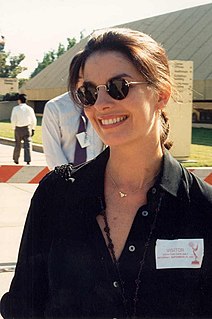A Quote by Brian Cox
In a sense I feel very much a part of the cinema now in a way where when I come back to the theater now I feel like a visitor. The cinema is really what I enjoy. I want to do more independent movies.
Related Quotes
I think what I loved in cinema - and what I mean by cinema is not just films, but proper, classical cinema - are the extraordinary moments that can occur on screen. At the same time, I do feel that cinema and theater feed each other. I feel like you can do close-up on stage and you can do something very bold and highly characterized - and, dare I say, theatrical - on camera. I think the cameras and the viewpoints shift depending on the intensity and integrity of your intention and focus on that.
Films are subjective - what you like, what you don't like. But the thing for me that is absolutely unifying is the idea that every time I go to the cinema and pay my money and sit down and watch a film go up on-screen, I want to feel that the people who made that film think it's the best movie in the world, that they poured everything into it and they really love it. Whether or not I agree with what they've done, I want that effort there - I want that sincerity. And when you don't feel it, that's the only time I feel like I'm wasting my time at the movies.


































